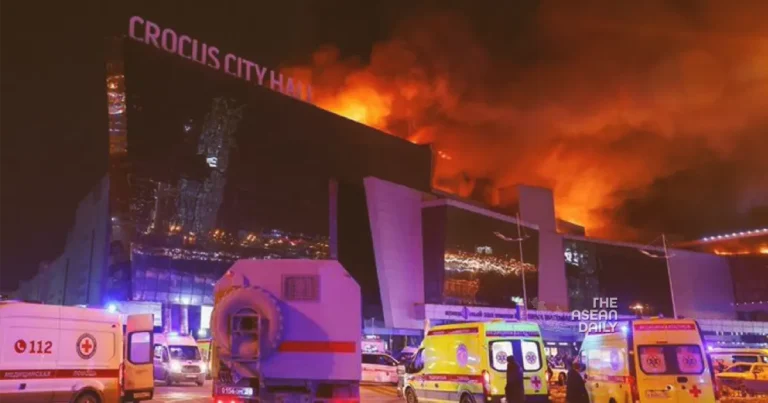24-3-2024 (WASHINGTON) In the wake of the devastating shooting rampage at a concert hall near Moscow, a chilling revelation has emerged: The United States has intelligence confirming the Islamic State’s claim of responsibility for the attack, a U.S. official revealed to Reuters. As the investigation unfolds, attention has turned to the group’s Afghan branch, known as ISIS-K, and its motives for targeting Russia.
The specter of ISIS-K, or Islamic State Khorasan, has long haunted the region, with the group emerging in eastern Afghanistan in late 2014 and swiftly establishing a reputation for extreme brutality. Named after an ancient term for the region that encompassed parts of Iran, Turkmenistan, and Afghanistan, ISIS-K has proven to be one of the most active regional affiliates of the Islamic State militant group.
While the group’s membership has declined since peaking around 2018, due to sustained offensives by the Taliban and U.S. forces, the United States continues to view ISIS-K as an ongoing threat. In a sobering assessment last March, General Michael Kurilla, the commander of U.S. Central Command, warned Congress that ISIS-K was rapidly developing the capability to conduct “external operations” in Europe and Asia, predicting that the group could potentially strike U.S. and Western interests outside Afghanistan “in as little as six months and with little to no warning.”
The group’s history of attacks, both within and beyond Afghanistan’s borders, underscores the gravity of the threat it poses. ISIS-K has been responsible for numerous deadly incidents, including attacks on mosques and the tragic suicide bombing at Kabul’s international airport in 2021, which claimed the lives of 13 U.S. troops and scores of civilians during the chaotic U.S. evacuation from the country.
Earlier this year, the U.S. intercepted communications confirming ISIS-K’s involvement in twin bombings in Iran that left nearly 100 people dead. The group has also claimed responsibility for a deadly suicide bombing at the Russian embassy in Kabul in September 2022, foreshadowing the escalation that has now unfolded on Russian soil.
While the Taliban’s efforts to defeat ISIS-K have led to a decline in the number of attacks within Afghanistan, according to a January UN report, bombings have persisted, such as the recent suicide bombing in front of a bank in Kandahar city that claimed at least three lives and injured a dozen others.
The question remains: Why would ISIS-K target Russia, a nation that has long been embroiled in its own conflicts and controversies? Experts suggest that the group’s motivations run deep, rooted in a broader opposition to Russian President Vladimir Putin’s policies and perceived complicity in activities that oppress Muslim communities.
“ISIS-K has been fixated on Russia for the past two years, frequently criticizing Putin in its propaganda,” said Colin Clarke of the Soufan Center, a New York-based research group. Michael Kugelman of the Washington-based Wilson Center echoed this sentiment, noting that ISIS-K “sees Russia as being complicit in activities that regularly oppress Muslims.”
Moreover, Kugelman added, the group’s ranks include a significant number of Central Asian militants with their own grievances against Moscow, further fueling the animosity and desire for retribution.




